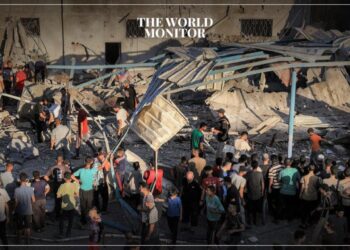The “Islamic Resistance in Iraq” announced on Saturday morning that it had attacked a “military target” in northern Israel using drones. In its statement, the “Islamic Resistance in Iraq” declared, “Continuing our path of resistance against the occupation, and in solidarity with our brothers in Palestine and Lebanon, and in response to the massacres committed by the occupying entity against civilians, including children, women, and the elderly, the Islamic Resistance fighters in Iraq attacked a military target in northern occupied territories with drones on the morning of Saturday, October 19, 2024.”
The statement further emphasized, “The Islamic Resistance confirms that operations against enemy strongholds will continue with increasing intensity.” Earlier, on Thursday morning, the “Resistance in Iraq” announced that it had attacked a “vital target” in Eilat, southern Israel, using drones. The “Resistance in Iraq” has repeatedly claimed responsibility for targeting sensitive Israeli sites over the past several months in retaliation for Israel’s war on the Gaza Strip.
Iraqi militias, particularly those allied with Iran, have ramped up their attacks against Israel amid the ongoing conflict in Gaza. Since October 2024, these factions have carried out numerous drone strikes targeting Israeli military sites in the north, as well as critical infrastructure in places like Eilat. These attacks are part of a broader regional strategy by Iran, which aims to pressure Israel through its allied groups, including Hezbollah in Lebanon.
The frequency of attacks has increased, with claims of almost daily strikes throughout October, marking a significant escalation compared to earlier months. The Iraqi factions operate under the “Islamic Resistance” banner and are closely linked to Iran’s Revolutionary Guard. Their strikes have included the use of advanced drone technology designed to evade Israeli defenses, adding a layer of complexity to the conflict.
These actions have not only intensified the military front but also strained Iraq’s internal stability, as the government in Baghdad struggles to balance its relationships with both Tehran and Western allies, such as the United States. The Iraqi government, although not officially endorsing these attacks, has been unable to prevent them, highlighting the influence of Iran-backed militias within the country.






